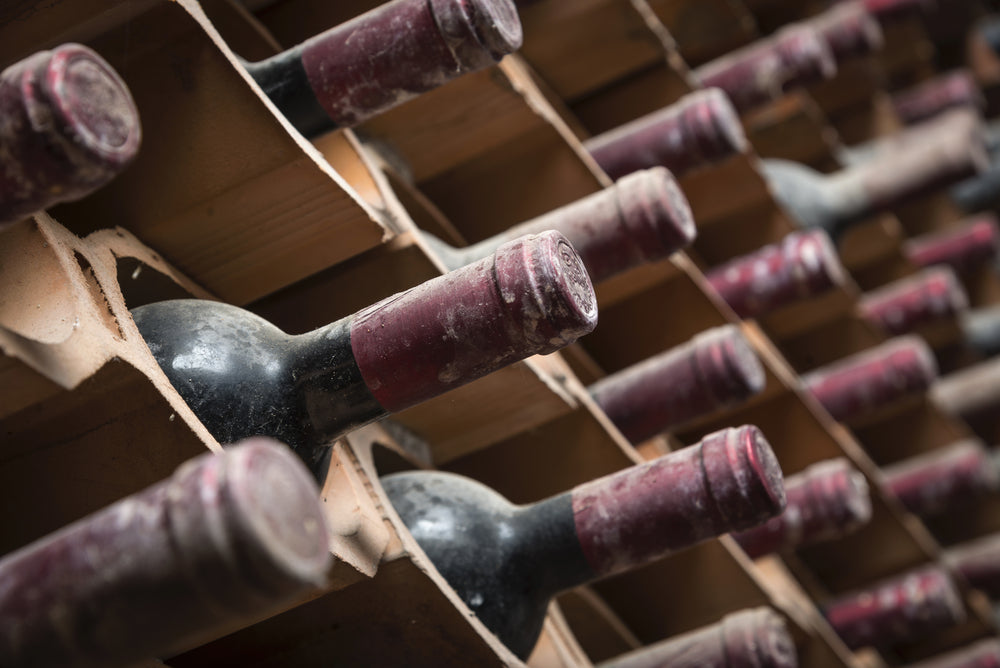
Why You Should Care About Wine Storage Humidity for Your Collection
Wine is a sturdy beverage. Few drinks withstand months, years, and sometimes decades without spoiling. The best part? Wine not only has a long shelf life but, in some cases, even improves over time.
Adequate wine storage is essential to help your wine collection mature slowly, allowing it to reach its full potential. Although wine is resilient, it also has many enemies. Oxygen in the air, temperature, sunlight, fluorescent light, bacteria, and—one we rarely talk about—humidity all have the power to ruin a bottle of wine. Let's discuss the role of humidity in wine cellars and strategies to manage it so you can reduce the risk of spoiled wine.
How Does Humidity Affect Wine?
Luckily, humidity is often the least of your problems when storing wine. Light, heat, and even vibration can damage wine more than moisture. However, humidity must be managed. After all, it’s one of the most important factors in wine storage.
Times have changed, and wine bottles are sealed better than ever. Corks are more dependable, and cork alternatives are equally effective. Humidity may not damage the wine itself, but it can damage the cork and the label on the bottle.
If humidity is too high, mold will grow in your cellar—which isn’t inherently dangerous. The world’s most exclusive underground cellars are moldy from the floor to the roof, like those in Burgundy. However, corks are made of organic matter, which can lose its integrity if they get too moist. If the cork is damaged, air will enter the bottle, and oxidation will ruin the wine.
High humidity will also deteriorate paper labels. After a few years, they’ll be impossible to read, making your collection unidentifiable. If humidity is too low, the cork might dry out, allowing air to ruin the wine. However, the labels will remain intact.
What’s an Ideal Humidity Level for Wine Storage?
Most wine experts suggest maintaining relative humidity levels of 55% to 75% because they prevent corks from drying and shrinking. Anything below 50% is risky, and you'll start to see mold in your cellar if the humidity is above 75%.
Humidity is hard to control, as it varies between geographical locations. It also varies depending on the season, with weather significantly changing humidity levels. However, humidity fluctuations over short periods are nothing to worry about; it’s the long-term average humidity that matters more.
How to Measure and Control Wine Storage Humidity
Hygrometers are advanced measuring tools that calculate the moisture content of air and its relative humidity level. These measurements can help you assess if your basement or another space is suitable for wine storage. A moisture meter is more effective for measuring humidity in specific materials, such as walls. For everyday monitoring, wall-mounted thermostats are a better option.
If you want to change a room's humidity level, you need a humidifier or a dehumidifier. If you need to use one, first consider if the cellar is located in the right place. Ideal storage locations for wine include basements and spandrels (the space under staircases). Standalone wine storage units are an excellent choice for large and small collectors alike. They're often equipped with humidity control systems.
Get the Most Out of Your Wine Experiences
Don't let humidity in your wine cellar stress you out. Humidity matters, but maintaining the temperature and reducing light exposure are more important. Unless you live in a tropical and subtropical climate, humidity won't threaten your wine collection. But if you notice mold and suspect the corks protecting your wine have been compromised, you should adjust the humidity level. This simple step will keep your wine cellar in good condition so you can reap the rewards of well-aged wine.
Be sure to invest in high-quality glassware so you can enjoy your favorite bottles of red, white, rosé, and sparkling wine as they’re intended. Grassl glasses strike the perfect balance between elegance and functionality, making them fit for any occasion. Browse the Grassl collection today to discover your match.
